Don't rush in, cautions Suu Kyi

Aung San Suu Kyi, Burma's icon of democracy, has what she calls a "simple ambition": she wants to see her country surpass its fellow Asean members in the next decade.
To achieve this, she said political reforms are as important as economic reforms that are slowly taking place. At the same time, she advised foreign businessmen to adopt a "wait-and-see" attitude "for their own good as well as that of the country" before investing.Suu Kyi met with a 12-member delegation of the Asean Business Council (ABC) that visited Rangoon and Naypyidaw on an exploratory business trip on February 6 and 7. The delegation met with representatives from the local Chamber of Commerce as well as government officials to discuss Burma's business climate.
"I won’t say 'satisfied' is the word. We’re pleased with the reforms so far, but I think they need to be strengthened and they need to be put on the right path," Suu Kyi told a group of journalists who had travelled from Kuala Lumpur to Rangoon and Naypyidaw with the ABC delegation.
While she welcomed the keen interest of foreign businesses in Burma, which is slowly opening up its economy, Suu Kyi is worried that the country may not be ready to cope with changes.
"We [she and the ABC delegation] have been talking about the importance of sound investment laws and the importance of rule of law," Suu Kyi noted. "I think [businessmen] should wait and see a little, for their own good as well as that of the country."
She noted that she had discussed these concerns with the ABC delegation in an hour-long closed-door meeting at her home, and had expressed a keen interest in agriculture-related businesses among the many investment areas.
"I think it’s not just a matter of potential investments, but also a matter of the potential of the country to cope with the investments," she explained. "This is an area of worry. We wonder how much potential there is to cope with the reforms we want. Of course, we can cope with them in the long run. But in the short run, how do we sequence these reforms so they can develop the right way as quickly as possible? We do need to think about speed because we're behind the others. There is a need to catch up. We can’t say we will take our own sweet time. It doesn’t work that way," she said.
Suu Kyi emphasised the need for economic and political reforms to take place at the same time, and said the rule of law should help address the country's ills such as corruption. "These have to go in tandem. I don’t think you can have genuine economic reforms without judicial reforms. It’s no use having good investment laws if you don't have a good judicial system to make sure the laws are applied," she said.
In a separate meeting with
the ABC delegation, Deputy Railway Minister U Thaung Lwin promised that Central Bank functions would be separated from the Finance Ministry in the next six months. He also said the
government was prioritising employment creation by opening up to large industries, specifically those from the high-tech sector.
"We are now revising the investment law," U Thaung Lwin said.
Meanwhile, Nazir Razak, CEO of the CIMB Group and chief of the ABC delegation, noted that Burma needs laws that are clear enough to provide a conducive business environment.
"I was a bit concerned because I didn't get a sense that there is a holistic, comprehensive plan at this point of time," Nazir said. "Aung San Suu Kyi did mention that what she thought was important was to start with a proper diagnostics of this situation and then put together the holistic plan. If one is not careful with these things, you can put the cart before the horse and have a lot of mix-ups, disappointments and setbacks."
He acknowledged that the changes would not be easy and might take time. "You're talking about undoing culture and practices that have been there for many, many years. [Burma's] eagerness [to reform] must be applauded but somewhat tempered for reality."
John Pang, chief executive officer of the CIMB Asean Research Institute, said Burma offers huge business potential for the entire region, not just Southeast Asia.
"It links the rest of Southeast Asia to the Indian Ocean and the Middle East. It opens up the land side of logistics like railways and road networks to the Middle East and to India," Pang said, adding that this will shift the centre of gravity in Southeast Asia's geo-politics.
"Asean is very maritime. Burma is literally the link between landlocked countries and its opening up will also help develop not just Burma but the entire region, like India's northeast provinces.
"Everyone has worries whether reforms can be carried out. It is not a question of whether Burma is open for business. It is open for business, but it's how we go from here, taking the next step. Burma is coming on stream at a fascinating time in world economic history, it is full of potential."
Based on the ABC delegation's meetings with local businesses and government officials, Pang said there was a strong desire to move forward. "That's the sense we all got, people want to catch up. But they do not need just piece-meal liberalisation but a proper plan. Is there a blueprint? How do you plan for your economy to be ready?"
Despite these concerns, AirAsia founder Tony Fernandes - who flew the delegation over to Burma on one of his aircraft - noted that "business should drive change".
He said he had already received two proposals during the trip for a joint venture with Burmese firms and was keen to take the talks further. AirAsia has two flights daily to Rangoon from Bangkok, and one from Kuala Lumpur.
"Obviously, the Chinese, Japanese and Koreans have been slightly ahead in Burma but I get the feeling that the country welcomes any form of help to get things moving," he said.
Suu Kyi, meanwhile, said she believes in the future of Burma, adding that being behind its fellow Asean members gave the country a chance to learn from the mistakes of others.
"I would like to see Burma ahead of all the Asean countries [in the next 10 years]. A very simple ambition."





















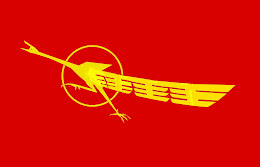





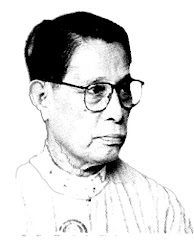


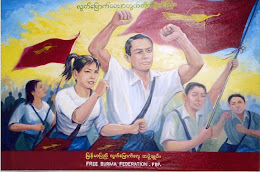





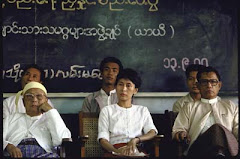

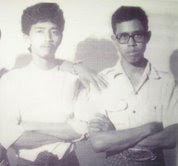

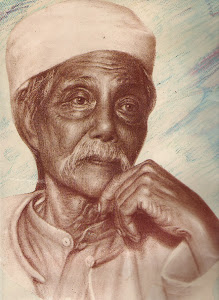
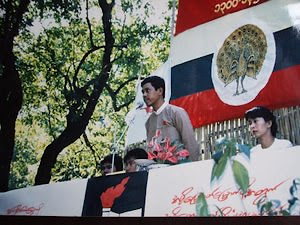
No comments :
Post a Comment